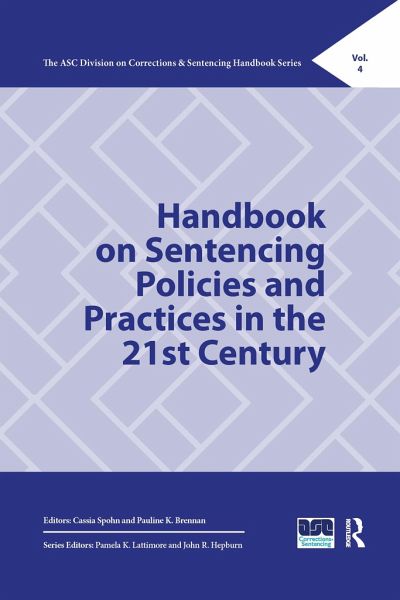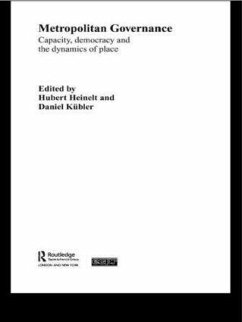
Handbook on Sentencing Policies and Practices in the 21st Century

PAYBACK Punkte
29 °P sammeln!
Sentencing Policies and Practices in the 21st Century focuses on the evolution and consequences of sentencing policies and practices, with sentencing broadly defined to include plea bargaining, judicial and juror decision making, and alternatives to incarceration, including participation in problem-solving courts. This collection of essays and reports of original research explores how sentencing policies and practices, both in the United States and internationally, have evolved, explores important issues raised by guideline and non-guideline sentencing, and provides an overview of recent resea...
Sentencing Policies and Practices in the 21st Century focuses on the evolution and consequences of sentencing policies and practices, with sentencing broadly defined to include plea bargaining, judicial and juror decision making, and alternatives to incarceration, including participation in problem-solving courts. This collection of essays and reports of original research explores how sentencing policies and practices, both in the United States and internationally, have evolved, explores important issues raised by guideline and non-guideline sentencing, and provides an overview of recent research on plea bargaining in the United States, Australia, and the United Kingdom. Other topics include the role of criminal history in sentencing, the past and future of capital punishment, strategies for reducing mass incarceration, problem-solving courts, and restorative justice practices. Each chapter summarizes what is known, identifies the gaps in the research, and discusses the theoretical, empirical, and policy implications of the research findings. The volume is grounded in current knowledge about the specific topics, but also presents new material that reflects the thinking of the leading minds in the field and that outlines a research agenda for the future. This is Volume 4 of the American Society of Criminology's Division on Corrections and Sentencing handbook series. Previous volumes focused on risk assessment, disparities in punishment, and the consequences of punishment decisions. The handbooks provide a comprehensive overview of these topics for scholars, students, practitioners, and policymakers.














